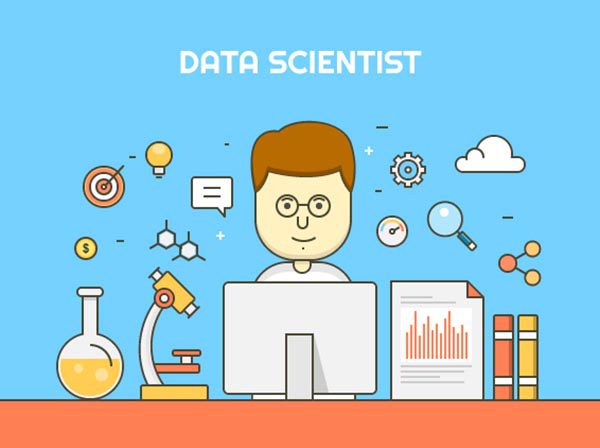Feeling overwhelmed with endless topics and uncertain where to start? You’re not alone. Data Scientist interview preparation can be challenging, but a clear, structured roadmap can help you tackle those pain points head-on and boost your confidence. Here’s an engaging guide to help you navigate your journey—from day one to interview day.
Overcoming Common Interview Prep Pain Points
- Topic Overload: With countless subjects like statistics, machine learning, programming, and behavioral questions, it’s easy to feel lost.
- Lack of Structured Guidance: Without a clear plan, you might spend too much time on one area while neglecting another.
- Time Management: Balancing preparation with your daily routine can be stressful.
- Insufficient Real-World Practice: Simulating a real interview environment for data science is hard without the right tools.
- Feedback Gaps: Limited feedback may slow your progress, and imposter syndrome can sap your confidence.
Your 4-Week Preparation Roadmap
A dedicated, week-by-week plan can turn chaos into clarity. Here’s a suggested 4-week timeline that helps you cover all the bases:
Week 1: Build Your Foundation
Focus: Statistics, Probability, and Basic Programming
Daily Goals:
- Day 1-2: Review fundamental statistics concepts (mean, median, variance, standard deviation) and probability theories.
- Day 3-4: Brush up on Python programming basics or R fundamentals—focusing on data types, loops, and functions.
- Day 5: Learn data wrangling and manipulation techniques using libraries like Pandas or dplyr.
- Day 6: Work on simple data analysis projects or exercises to reinforce your understanding.
- Day 7: Rest and review key learnings; use our Interview Question Generator for foundational practice questions.
Week 2: Dive into Machine Learning & Advanced Analytics
Focus: Supervised/Unsupervised Learning and Algorithm Fundamentals
Daily Goals:
- Day 1-2: Study core machine learning concepts such as regression, classification, and clustering.
- Day 3: Learn about model evaluation techniques, overfitting, and underfitting, and practice using cross-validation.
- Day 4: Explore advanced algorithms like decision trees, random forests, and support vector machines.
- Day 5: Work on coding challenges that involve implementing machine learning algorithms from scratch.
- Day 6: Practice feature engineering, hyperparameter tuning, and model optimization.
- Day 7: Reflect on your progress and simulate interview questions using our Interview Question Generator.
Week 3: Master Data Visualization, Tools & System Design
Focus: Data Visualization, Big Data Tools, and Data Pipeline Design
Daily Goals:
- Day 1: Study data visualization principles and tools like Matplotlib, Seaborn, or Tableau.
- Day 2-3: Learn how to build effective visualizations and dashboards; understand best practices in storytelling with data.
- Day 4: Explore big data tools and frameworks such as Spark, Hadoop, or cloud data services.
- Day 5: Understand the basics of data pipeline architecture and system design for scalable data solutions.
- Day 6: Work on a mini-project that integrates data collection, processing, and visualization.
- Day 7: Summarize your learnings and prepare a mock case study presentation to demonstrate your full data workflow.
Week 4: Polish Your Behavioral & Soft Skills
Focus: Behavioral Interviews, Portfolio Review, & Mock Sessions
Daily Goals:
- Day 1: Prepare your portfolio and review your past data science projects. Be ready to discuss your methods, results, and design choices.
- Day 2: Outline key experiences using the STAR method (Situation, Task, Action, Result) tailored to data-driven projects.
- Day 3: Record yourself answering common behavioral and technical questions.
- Day 4: Conduct mock interviews focusing on both your technical skills and your ability to communicate complex ideas clearly.
- Day 5: Seek feedback from peers or mentors, and refine your explanations.
- Day 6: Practice articulating your problem-solving process, data insights, and decision-making strategies.
- Day 7: Relax, review your progress, and boost your confidence with final rounds of mock sessions using our Interview Answer Generator.
Bringing It All Together
By following this roadmap, you’re not only addressing the common pain points of interview preparation but also ensuring that every aspect of your Data Scientist interview is covered. Remember:
- Break It Down: Tackle one component at a time—don’t try to learn everything in one go.
- Stay Consistent: Even short, focused sessions add up over time.
- Use the Right Tools: Leverage interactive tools like our Interview Question and Interview Answer Generators to simulate real interview conditions and get valuable feedback.
- Believe in Yourself: Everyone faces challenges; your dedication and structured plan will set you apart.
Start your journey today, and turn every challenge into an opportunity for growth. With clear steps and the right mindset, your dream role as a Data Scientist is well within reach!
Happy prepping, and here’s to your success!




